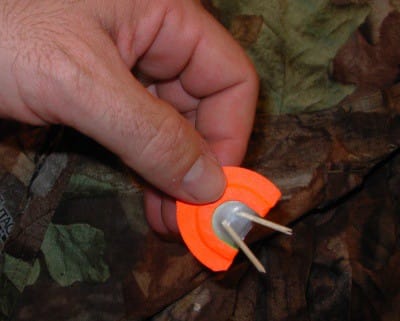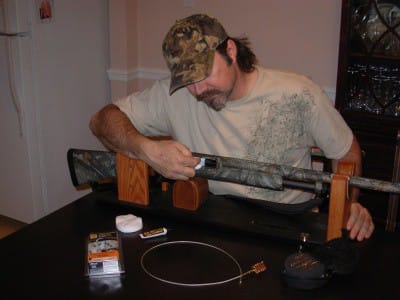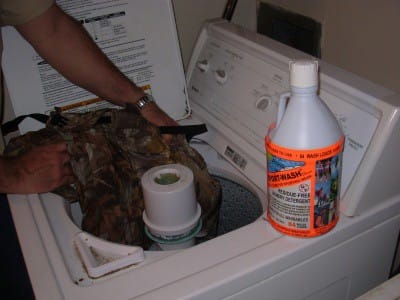
Turkey season is already grinding down to a close, and you’re either elated at the success you’ve enjoyed or feeling completely whipped and thinking it’s time to pick up a fishing rod. The birds have a way of doing that to you.
Whether you’re celebrating or bemoaning the end of the season, before you get back on to the chores that have sat undone around the house or start heading to that favorite fishing hole, don’t just leave your turkey gear in a pile on the garage floor. Store it right so that when next season rolls around, you’ll have everything in order. More importantly, you should have it all in “working” order. Where firearms and calls are involved, that can be vital.
Clean and Store that Shotgun
Turkey hunting can be hard on a shotgun. Hunters are frequently laying them on the ground where grit and dirt can work their way into the actions, not to mention the frequent spring storms both gun and hunter encounter. While guns should be thoroughly cleaned after each outing, I know plenty of hunters who don’t do it. So at the very least, after a long season of wind, rain, dirt and handling with bare hands, protect your most important hunting tool with a thorough breakdown and cleaning.
Pull the gun apart and remove the trigger assembly to blow dirt and grime from the detailed working parts. Run a brush and some well-oiled patches through the barrel until the inside shines like new, and don’t forget to remove the magazine tube. Run an oiled patch through that as well. Spray or coat with oil the spring inside the magazine tube to prevent rust. You’d be amazed how much leaf matter and filth get shoved inside along with your shotgun shells. If you’re not comfortable pulling the trigger assembly down, take your shotgun to a skilled gunsmith. This isn’t a bad idea regardless of your skill level with guns, and a professional cleaning can be had for a very fair price.

When storing for the off-season, never put the gun back in a case where moisture can collect and cause rust. Optimally, store your shotgun in your home inside a gun safe or cabinet where it can be locked away from children (if your house has any) and will be protected from sharp temperature and moisture changes. Leave a light coating of oil on all metal surfaces for protection from rust, but not so much that it will gunk up working parts or drain down the stock and into the bottom of the safe.
Keep Calls Safe
Most of your calls won’t require much post-season care short of properly storing them in a safe, dry place. But mouth calls do require some extra attention.
Latex reeds on diaphragm calls can dry out and stick together, becoming brittle before the next season and providing little life beyond a single spring if not cared for properly. At the end of the season (and this isn’t a bad idea for after each hunt), wash your diaphragms beneath cool water followed by a quick rinse with a mild mouthwash (dilute if necessary) in order to kill germs. After rinsing thoroughly in mouth wash, rinse again in cool water and gently insert toothpicks (preferably flat ones) between each of the reeds to keep them from drying and sticking together. Diaphresh (diaphresh.com) makes a rinse as well as a call box that creates an easy storage solution for mouth calls. It not only separates reeds on the calls, but also makes it easy to rinse and store diaphragms.
Store them in an airtight container and keep in a cool, dark place until next season. I know some guys who keep them in their refrigerators, which provides the perfect environment for extended storage of mouth calls. Rinsing them with some sort of astringent or mouth wash is important in order to kill bacteria that can live between the reeds. By not cleaning them, you risk a sore throat and even a cold when you start using the calls again next season. As for friction call—like box or pot-and-peg calls—simply wipe down with a clean, dry cloth to clean them of dirt and oils from your skin and store them in a dry, climate controlled space where moisture won’t be a problem.
Prep Your Camo for Deer Season
Most turkey hunters will use the same camo they wore turkey hunting when deer season rolls around, so go ahead and prep your hunting clothes for the need to be scent free. Turn clothes inside-out to minimize fading of the camouflage finish and wash in cold water. Use a scent-free wash such as Hunter’s Specialties Scent-Away Wash, Atsko’s Sport-Wash or even an old favorite—baking soda.

All of these items do a great job of leaving items free of odors and won’t coat your camo in UV brighteners common to most detergents. Hang the clothes out to dry (again, to minimize pattern fading) and store in an airtight plastic bag or container until they are needed next season. Wash and store all clothing items including gloves, socks, face masks and even hats—and often overlooked, but typically sweat-stained item.
Other Gear Considerations
As for optics such as binoculars and laser rangefinders, wipe down and clean lenses using a soft brush and special lens cleaning cloth. Once they are free of grit and dust, store them in their cases and place them where they won’t be subject to extreme temperatures. Leaving items in a vehicle during the hot summer months is one of the worst things you can do as the high temps that build up inside a closed car or truck can cause plastic and metal to expand and warp.



